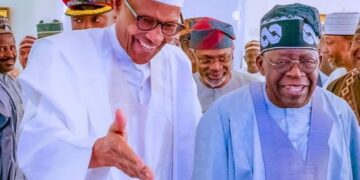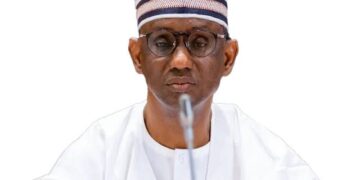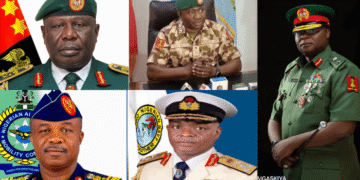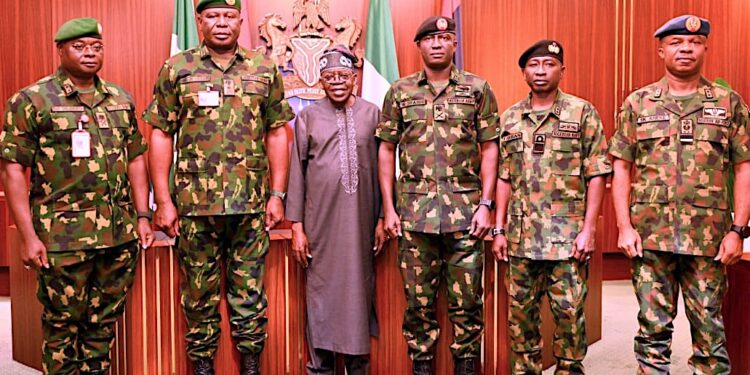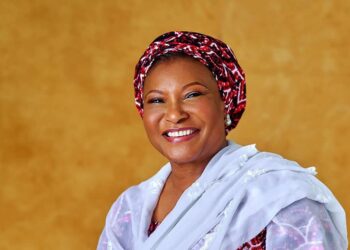The Human Rights Writers Association of Nigeria (HURIWA) has commended Zamfara State Governor, Dauda Lawal, for his firm stance against peace deals with bandits, warning that such negotiations undermine state authority, embolden terrorists, and risk violating Nigeria’s counter-terrorism laws.
In a statement issued on Thursday, HURIWA aligned with Governor Lawal’s position that allowing armed groups to retain their weapons while dictating peace terms only postpones violence and erodes national sovereignty. The association urged President Bola Ahmed Tinubu to immediately halt all negotiations with proscribed groups and direct the service chiefs to prioritise lawful, intelligence-driven operations aimed at arresting and prosecuting top bandit commanders, including the notorious Bello Turji, or resign.
Governor Lawal, while addressing participants of the Executive Intelligence Management Course (EIMC) 18 at the National Institute for Security Studies (NISS) in Abuja, cautioned that dialogue without disarmament and accountability equates to surrender. He stressed that genuine peace can only be achieved through the rule of law, coordinated state-led action, and transparent security operations.
HURIWA noted that previous peace accords in parts of the North-West, including Zamfara, Katsina, Sokoto, and Niger States, only produced temporary lulls before bandit attacks resumed. The rights group warned that unofficial or unauthorised peace initiatives allowing armed actors to retain weapons create safe havens for criminal networks, reward violence with impunity, and undermine citizens’ confidence in government.
The association further cautioned that any reintegration or amnesty programme lacking robust legal frameworks and victim-centred redress mechanisms amounts to rewarding criminality and may breach the Terrorism (Prevention and Prohibition) Act, 2022. Under Section 11(1) of the Act, “any person who commits an offence under this Act shall on conviction be liable to death or imprisonment for life,” while Sections 12(1) and 13(1)(a) stipulate not less than 20 years’ imprisonment for anyone who knowingly finances, harbours, or supports terrorists. Similarly, Section 2(1)(a–d) defines terrorism to include acts intended to cause death, serious bodily harm, or destruction of property for the purpose of intimidating a population or compelling a government to act or refrain from acting.
HURIWA stressed that such provisions leave no room for unofficial pacts with violent non-state actors and that government representatives who engage in such negotiations risk contravening the same law they are sworn to uphold. The group cited Section 26(1) of the Act, which punishes acts of destruction of public infrastructure as terrorism; a section recently applied in the Inspector-General of Police v. Rivers Assembly Attack Suspects (2024), where the Federal High Court in Abuja sustained terrorism charges against five individuals linked to the burning of the Rivers State House of Assembly, holding that destruction of state assets constitutes terrorism under Nigerian law.
The rights group also referenced the Supreme Court’s position in Federal Republic of Nigeria v. Nnamdi Kanu (2023), where the apex court reaffirmed that terrorism trials fall squarely within the jurisdiction of Nigerian courts and must be pursued diligently regardless of procedural challenges. The judgment, HURIWA said, reinforces the principle that terrorism-related offences cannot be dismissed or negotiated away under any guise.
Similarly, in the ongoing prosecution of suspected Al Shabaab members linked to the 2022 Owo Church massacre, the Federal High Court relied on Sections 2(1)(2)(3)(v) and 24(1)&(2) of the Terrorism (Prevention and Prohibition) Act, 2022, to sustain charges of mass killing and membership of a terrorist organisation — further affirming that the law provides no amnesty for perpetrators of such crimes.
HURIWA described any government-sanctioned or informal peace talks with proscribed groups as de facto support for terrorism, punishable under the law. It therefore urged all security agencies to rigorously enforce the Act and ensure that those responsible for mass killings, abductions, or the financing of terror networks are brought to justice through open and transparent judicial processes.
On the human cost of the crisis, HURIWA said casualty and abduction figures demand urgent national action but noted that sources vary and some figures remain contested. “Key, recent findings include: (a) an Amnesty International analysis reporting at least 10,217 people killed in the roughly two years following the current administration’s inauguration (since May 29, 2023); (b) the National Human Rights Commission’s dashboard recording 3,584 killings and 3,012 kidnappings between January 2024 and April 2025; and (c) earlier tracking by media and research groups that recorded thousands of fatalities and abductions in 2023 and 2024 (for example, Nigeria Watch reported 11,794 violent deaths in 2023),” the group stated.
HURIWA therefore presents these figures as the best available ranges from credible monitors and calls on the Federal Government to publish a consolidated, independently verifiable casualty and abduction tally. The association also cited Attorney-General Lateef Fagbemi’s disclosure that 226 terrorism suspects were convicted between December 2024 and early 2025, describing this as proof that enforcement is possible where political will exists.
The association warned that continued tolerance of illegal negotiations with armed groups could expose Nigeria to international scrutiny and reputational damage. It said it would not hesitate to brief global oversight bodies and foreign legislative committees if the practice persists, stressing that such engagement would aim to promote constructive accountability and rights-respecting security measures.
HURIWA commended Governor Lawal’s three-pronged approach of improving coordination among security agencies, strengthening community protection arrangements, and establishing local peace committees; noting, however, that these must remain subordinate to national law and should not substitute for the arrest and prosecution of violent actors.
The rights group called for a comprehensive national response that integrates lawful military operations, stronger border control to curb illicit arms flows, transparent rehabilitation under judicial oversight, community engagement, and investment in livelihoods and youth employment in affected regions.
HURIWA concluded by urging the Presidency to publish a time-bound national plan with measurable targets for reducing kidnappings and killings, apprehending major bandit leaders, and restoring public order across affected states. The group reaffirmed its commitment to monitoring developments and advocating for lawful, accountable policies that protect Nigerians from terrorism, banditry, and mass criminality.
*Comrade Emmanuel Onwubiko*
National Coordinator,
Human Rights Writers Association of Nigeria (HURIWA)








